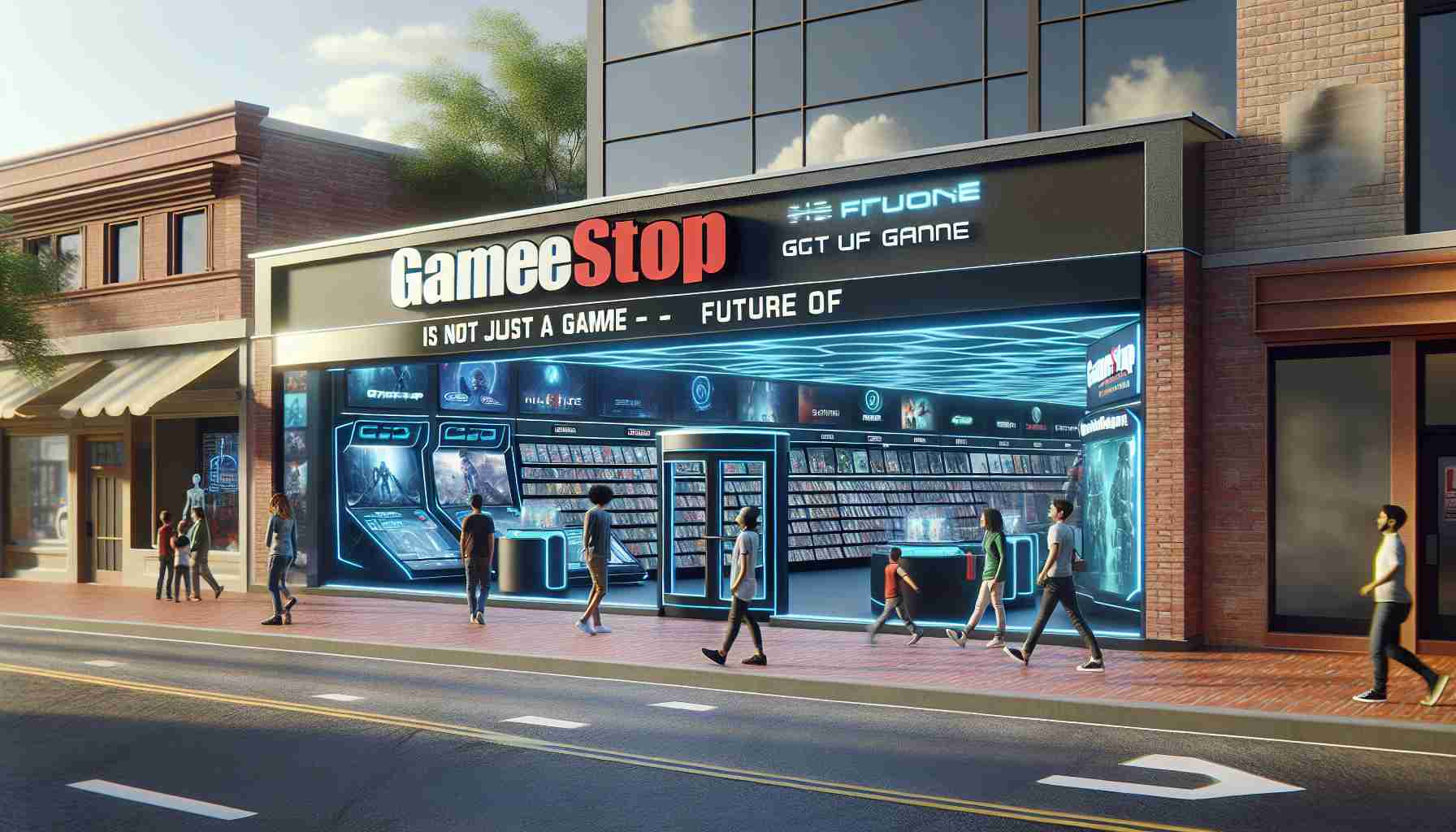- GameStop is transitioning from a retail giant to a tech-first entity, focusing on digital platforms and NFT ventures.
- AI and blockchain are pivotal to GameStop’s new strategy, enhancing customer engagement and enabling digital asset management.
- The integration of these technologies is crucial for maintaining investor confidence and boosting GME’s share price.
- Success depends on balancing traditional retail strengths with innovative technological advancements.
- GME shares may attract tech-savvy investors, making them a potentially significant player in digital transformation.
In an age where digital transformation is redefining investments, the GameStop stock saga is set for another intriguing chapter. While its past was punctuated by Reddit-fueled fervor, the future of GME shares hinges on forward-thinking strategies and evolving technologies.
Decoding the Dynamics
GameStop, traditionally known as a retail giant for gamers, is now navigating uncharted waters. The company is pivoting towards becoming a tech-first entity, investing heavily in digital platforms and NFT ventures. This transition could significantly impact its share price, offering new opportunities for investors willing to delve into the intricate world of crypto assets and blockchain technology.
AI and Blockchain: The Game Changers
Emerging technologies such as artificial intelligence (AI) and blockchain are central to GameStop’s revamped business model. By leveraging AI for customer engagement and operational efficiency, and embracing blockchain for digital asset management and trading, GameStop aims to revolutionize gaming and retail experiences. This could attract tech-savvy investors and bolster its share price in the long term.
Looking Ahead
As GameStop integrates these technologies, the focus will be on maintaining robust investor confidence and delivering on its digital promise. The company’s future success—and, consequently, GME’s share price—will depend on how effectively it can balance traditional retail strengths with innovative technological fronts. With rapid advancements in tech, GME shares could become a staple for investors eager to be part of a digital revolution, making this stock one to watch closely.
Is GameStop Reinventing Itself as a Tech Titan? Follow the Revolution!
Pros and Cons of GameStop’s Technological Transition
Pros
– Innovation: GameStop’s pivot to digital and NFT platforms presents new revenue streams and positions the company at the forefront of the next technological wave.
– Market Expansion: By embracing AI and blockchain, GameStop can tap into the expansive global digital asset market, potentially attracting a new generation of investors.
– Customer Engagement: Enhanced customer experiences through AI-driven solutions better align with current consumer expectations, potentially improving brand loyalty.
Cons
– Risk: Transitioning from a traditional retailer to a technology-oriented company involves significant financial risks and operational challenges.
– Market Volatility: Investments in crypto assets and other nascent technologies may expose GameStop to greater market volatility, affecting share performance.
– Execution: Successfully implementing these technologies requires overcoming substantial operational hurdles and executing deliberate strategic planning.
Market Forecasts and Trends
Market Forecast
According to industry analysts, the global digital asset market is expected to grow significantly, with blockchain technology playing a substantial role in shaping retail and gaming landscapes. GameStop’s strategic investments could align well with these trends, potentially expanding its market valuation if effectively implemented.
Trends
– The integration of NFTs (Non-Fungible Tokens) indicates a broader industry move toward tokenized digital goods.
– Increasing consumer preference for digital and immersive experiences supports GameStop’s focus on AI-enhanced gaming and retail applications.
GameStop’s Use Cases and Innovations
Use Cases
– NFT Marketplace: GameStop’s NFT platform allows creators and gamers to buy, sell, and trade digital assets, potentially revolutionizing game content monetization.
– AI-driven Retail: Utilizing AI improves supply chain efficiencies, personalizes customer experiences, and enhances decision-making processes in retail environments.
Innovations
– Decentralized Gaming Ecosystems: GameStop’s exploration into blockchain furthers decentralized gaming ecosystems, offering transparent, secure, and efficient transactions.
– Blockchain Loyalty Programs: Potential development of blockchain-based customer loyalty programs can provide users with unique rewards and seamless redemption processes.
Important Questions and Answers
1. How will AI and blockchain impact GameStop’s share price in the long term?
These technologies could enhance operational efficiency and attract tech-focused investors. As GameStop integrates these innovations, their success will depend on execution, potentially stabilizing and increasing its share price.
2. What are the potential risks associated with GameStop’s focus on digital technologies?
Risks include the volatility of crypto markets, significant investment costs, and the challenge of transforming from a traditional retail model to a tech-driven business. These factors could impact financial performance if not managed well.
3. Can GameStop effectively compete with tech giants in the digital space?
GameStop’s success hinges on rapid adaptation and execution of its digital strategies. While it faces competition from established tech companies, leveraging niche market opportunities could fortify its position in the digital retail and gaming sectors.
To learn more about GameStop’s strategic initiatives and the broader gaming industry, visit GameStop.






